The Monster
I stopped believing in monsters on Thanksgiving Day in 1976, when my stepfather came downstairs for dinner wearing black dress pants, a white collared shirt, a pair of freshly polished black leather shoes and only one sock.What will always make a monster appear even more monstrous is his ability to be magnanimous, even lovable, toward those most often targeted by his abuse.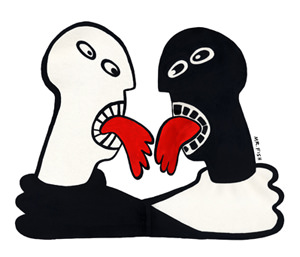
I stopped believing in monsters on Thanksgiving Day in 1976, when my stepfather came downstairs for dinner wearing black dress pants, a white collared shirt, a pair of freshly polished black leather shoes and only one sock. Had we been at my parents’ house, I probably would’ve put down my Famous Monsters of Filmland magazine and left the room at the sight of him, but this was my maternal grandparents’ house and he wasn’t stumbling around with his shirt off and there wasn’t the stench of Jack Daniels and stomach acid filling the room like turpentine. So I stayed, sprawled in my grandfather’s Barcalounger like Jesus in the Pietà, and settled back into my magazine, allowing my eye to track backward through the pictorial sequence of Lon Chaney Jr. changing into the Wolf Man, watching as his lower canines receded back into his jaw and his bloodlust softened into the tortured mediocrity of a man made average.
On the same day that Moammar Gadhafi was yanked from a drainpipe in Surt and killed by Libyan rebels, I was in Harlem participating in a multi-author book event at a small independent bookstore called Hue-Man. Having spent the afternoon watching and re-watching the frenetic cellphone footage of the deposed dictator being manhandled onto the hood of a utility truck, where he sat wiping blood out of his eyes, his wedding ring and bare feet and Richard Simmons hairdo making him appear exactly as fiendish and dangerous as a confused senior citizen having just been pulled violently from a Demerol drip and commanded to remember beneath a blazing hot sun where he’d left the TV remote, I couldn’t help but feel sorry for the guy. The scene made me think of the 1931 Fritz Lang classic, “M,” starring Peter Lorre as a murderer of children who, at the film’s climax, finds himself surrounded by an angry sea of other criminals—pickpockets, arsonists and the murderers of grown-ups—in an abandoned distillery somewhere in pre-Hitler Berlin. The mob is planning to execute Lorre for, essentially, the crime of poor choice, and he is demanding that he be handed over to the police. The request, of course, is met with great peals of laughter from the lynch mob, and Lorre is suddenly made to appear as small and terrified and defenseless as a child just before being devoured by a pack of wild animals.
Q: How many kids with ADD does it take to change a light bulb? A: LET’S GO RIDE BIKES!
Gadhafi was stripped and shot and punched and kicked and spat on and sodomized with a sharp stick before he was killed by a crowd that was laughing and dancing while flashing peace signs and crowing about the virtues of justice and how great and merciful God was.
Ludwig Wittgenstein said, “A serious and good philosophical work could be written consisting entirely of jokes.” That’s the quote that gave me my focus for the two-minute talk I was asked to give in promotion of my new book at the Harlem bookstore event, although I never cited it. What I like to think Wittgenstein meant was that humor quite often derives much of its potency from simple truth-telling, its comedic snap coming from the shock that the average person, who typically experiences life through any number of political and religious and cultural filters, experiences when confronted with sheer honesty.
Q: What’s worse than finding a worm in your apple? A: Being raped.
What will always make a monster appear even more monstrous is his ability to be magnanimous, even lovable, toward those most often targeted by his abuse. The unpredictability of such behavior prevents a victim from ever being able to recognize any part of the outside world as safe or sure. Then there is the world of make-believe.
If you really want to upset your parents and you are not brave enough to be gay, go into the arts. That was the Kurt Vonnegut quote I opened with at the bookstore, offering it as an example of a simple statement of fact that, though it is neither joyous nor optimistic nor complimentary at all, makes us laugh. Why is that? Should not such an unflattering observation about our own intolerance of both homosexuality and artistic ambition shame us?
“Another example of a joke being funny simply because it surprises us with its bold, unapologetic adherence to truth,” I said to the crowd, which was made up mostly of African-American women older than 60, “is this: What’s the worst thing you can hear while you’re blowing Willie Nelson? I’m not Willie Nelson.” I then went on to say that while the Willie Nelson joke didn’t require much analysis to determine why it was true, the Vonnegut quote did. Why would a parent be upset about his or her child wanting to be an artist? After all, isn’t art—whether we’re talking about books or music or movies or painting or dance—precious to every single one of us? Is it not the source material we most revere when we’re hoping to unwind from a day spent enduring the soul-crushing shit storm that is normal life? Hasn’t John Coltrane pulled more desperate souls in from the window ledge than, say, the Ten Commandments or Newton’s law of universal gravitation?
Having known no other father, my stepfather was what I’d grown up believing patriarchy and, by default, leadership and absolute authority to be. Rather than earning the respect of my brothers and sister and me, my stepfather exacted affection as if it were some sort of tax levied against us in revenge for his failure to enter adulthood as something other than a hopelessly pissed-off, unskilled teenager whose only concept of maturity was whatever jury-rigged masculinity he hoped to cull together from mixing auto mechanics with alcoholism. As a result, we all did what the Libyans might have done 35 years later, which was to develop a deep disdain for any fairy tale that held within it a king or an emperor or a God whose power had been vested by fiat and not hard-won through either humor or compassion or ballot.
Up until that Thanksgiving in 1976, my stepfather seemed like the real deal to me, no less a convincing example of genuine villainy than a recurring nightmare is for anybody desperate to wake from a dream gone haywire. Once, while he was beating me in a vacant lot with a wooden stake used to mark property, I hollered for my mother and wondered why she never came to my rescue, leaving me to puke alone in the weeds on my hands and knees. Then, perhaps a week later, while we swerved wildly down the middle of the highway in a green Nova held together by rusty wire hangers and duct tape, my stepfather deliberately running cars off the road and throwing empty beer cans out the driver’s side window, I sat white-knuckled in the backseat with my brothers and sister and watched our commander in chief grab my mother roughly by the upper arm and pull her close. I remember imagining that I could hear her anguished telepathy hollering for somebody to rescue her, realizing all of a sudden that perhaps the reason why she hadn’t saved me earlier in the week was because neither one of us had a safe location from which to pull the other.
Two muffins were baking in an oven. One muffin turns to the other and says, “Holy shit, it’s hot in here!” The other muffin says, “Holy shit … a talking muffin!”
Q: Hey Dave, why are you wearing only one sock? A: I needed to blow my nose in the middle of the night and the other sock was the only thing I could reach.
Looking at the vulnerable patch of pale hairless skin stretched shiny over my stepfather’s exposed ankle, I laughed and at the same time pitied him for needing to work so hard to reinterpret the belittling laughter from everybody in the room as benign fondness. Decades later I would hear that Moammar Gadhafi’s last words were, “Do you know right from wrong?” and I’d wonder what our collective eye rolling was betraying about our inability to answer the question.
Your support matters…Independent journalism is under threat and overshadowed by heavily funded mainstream media.
You can help level the playing field. Become a member.
Your tax-deductible contribution keeps us digging beneath the headlines to give you thought-provoking, investigative reporting and analysis that unearths what's really happening- without compromise.
Give today to support our courageous, independent journalists.
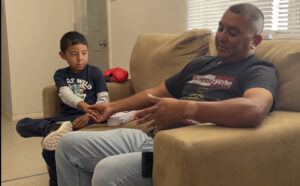

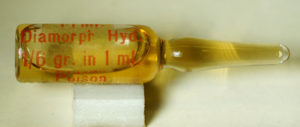
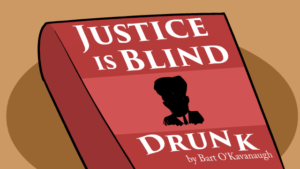
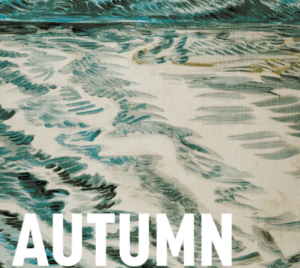

You need to be a supporter to comment.
There are currently no responses to this article.
Be the first to respond.